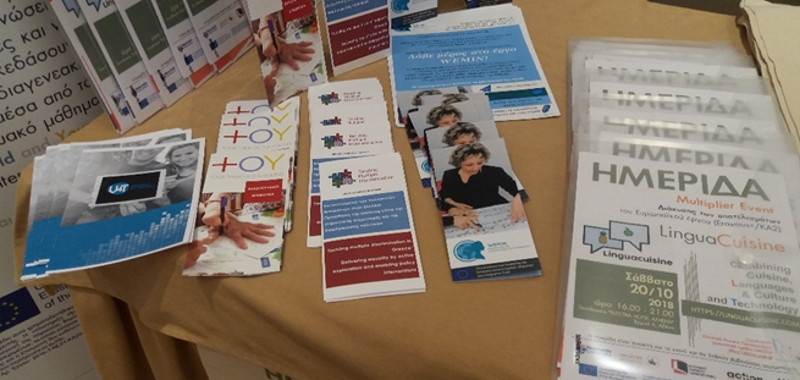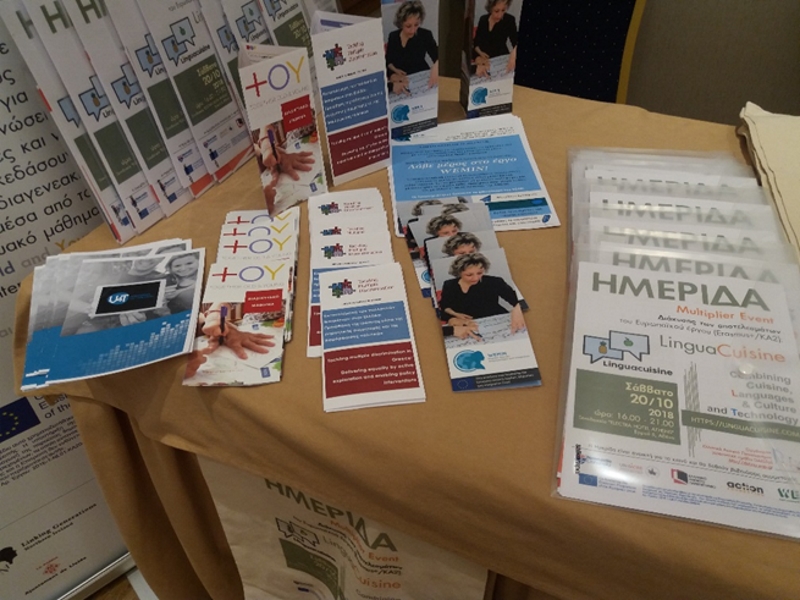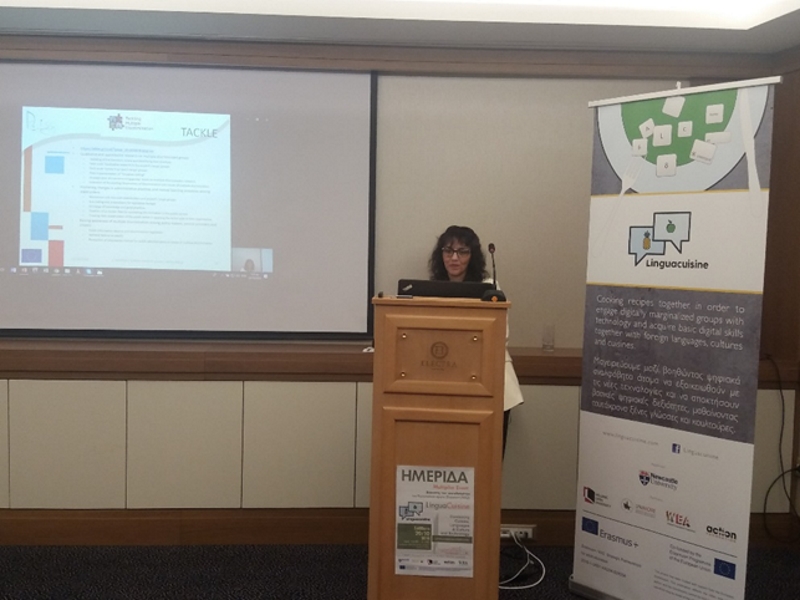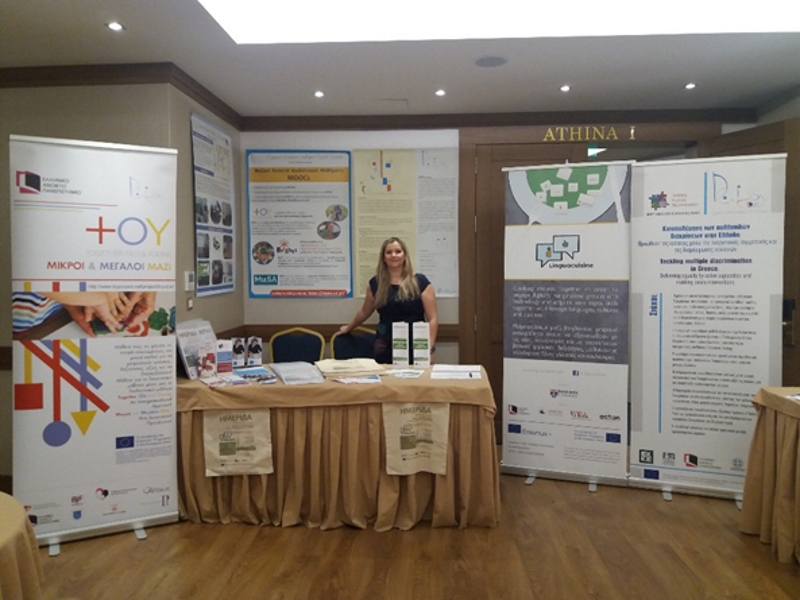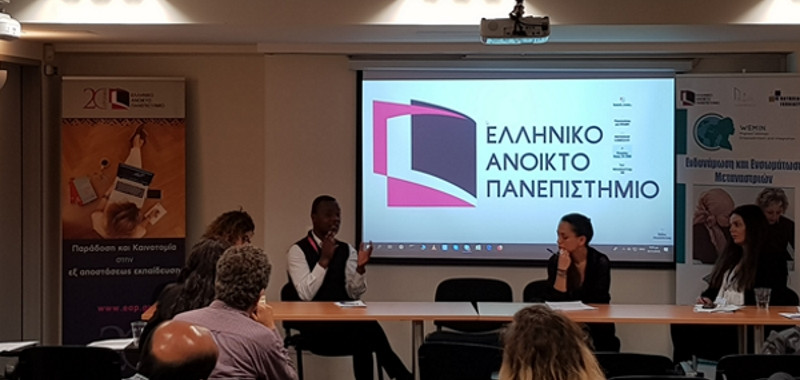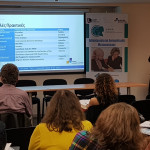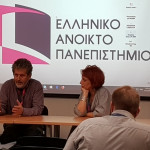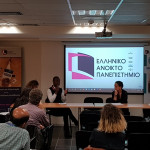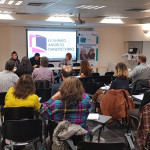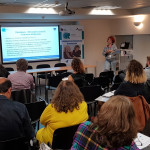Η ερευνητική ομάδα DAISSy του Ελληνικού Ανοικτού Πανεπιστημίου διοργάνωσε με επιτυχία Ημερίδα με αντικείμενο Combining Cuisine, Languages, Culture & Digital Technology. Η εκδήλωση έλαβε χώρα στις 20 Οκτωβρίου 2018 σε κεντρικό ξενοδοχείο της Αθήνας.
Στόχος της Ημερίδας ήταν η παρουσίαση των αποτελεσμάτων του έργου Linguacuisine, το οποίο υλοποιείται στο πλαίσιο του προγράμματος Erasmus+/KA2. Το έργο συντονίζεται από το Newcastle University της Αγγλίας και το ΕΑΠ συμμετέχει ως εταίρος.
Ο Καθηγητής ΕΑΠ και Διευθυντής της ομάδας DAISSy Αχιλλέας Καμέας παρουσίασε συνοπτικά το αντικείμενο και τα αποτελέσματα του έργου LinguaCuisine. Στη συνέχεια, η Μαρία Ασπιώτη, Ερευνήτρια της ομάδας DAISSy και Εκπαιδεύτρια Ενηλίκων, παρουσίασε την εκπαιδευτική μεθοδολογία που εφαρμόστηκε στο έργο και την Διαδικτυακή Πλατφόρμα που αναπτύχθηκε, η οποία υποστηρίζει την ανάρτηση ψηφιακών συνταγών. Η Αλίκη Παναγιώταρου, Ερευνήτρια της ομάδας DAISSy και Ειδικός ανάπτυξης ψηφιακών δεξιοτήτων, παρουσίασε το καινοτόμο σύστημα αξιολόγησης και πιστοποίησης ψηφιακών δεξιοτήτων που αναπτύχθηκε από το ΕΑΠ, το οποίο είναι βασισμένο στο Ευρωπαϊκό πλαίσιο DigComp 2.1.
Η Αθανασία Δρακούλη, Διδάκτορας Γλωσσοδιδακτικής και Κοινωνιογλωσσολογίας, μίλησε για τα πολυμέσα και τις ψηφιακές τεχνολογίες καθώς και για τον ρόλο που έχουν στην εκμάθηση των ξένων γλωσσών, τονίζοντας ιδιαίτερα τη συμβολή τους στην αξιοποίηση στοιχείων διαθεματικότητας και ολιστικής προσέγγισης της γνώσης, ενώ παράλληλα παρέχουν κίνητρα στους μαθητές για ενεργή συμμετοχή στη μαθησιακή διαδικασία και μειώνουν το άγχος κατά την επαφή και εκμάθηση της ξένης γλώσσας.
Η Ελένη Χρυσικάκη, Καθηγήτρια Αγγλικής Γλώσσας, Διευθύντρια Κέντρου Ξένων Γλωσσών, μίλησε για την χρήση της ψηφιακής τεχνολογίας στην σύγχρονη εκπαίδευση ξένων γλωσσών και τη δυνατότητα που παρέχει σε καθηγητές και μαθητές να διασυνδέουν τη μαθησιακή διαδικασία με τις πραγματικές τους ανάγκες καθιστώντας το αντικείμενο της μάθησης πιο προσιτό.
Η Λίλα Καραποστόλη, Διευθύντρια του Culinary Center & Cookery Club “Μαθήματα Μαγειρικής”, αναφέρθηκε στις τρεις διαστάσεις της μαγειρικής: την επαγγελματική, την αναγκαία «πρέπει να μάθω να μαγειρεύω, γιατί πρέπει να τραφώ», και τέλος τη δημιουργική διάσταση. Επίσης, ανέδειξε την άμεση σχέση αυτών των τριών διαστάσεων με την ψηφιακή τεχνολογία καθώς και την ραγδαία ανάπτυξη ψηφιακών κοινοτήτων με κεντρικό θέμα τη μαγειρική.
Τέλος, η Ευγενία Κόλλια, Υπεύθυνη Ευρωπαϊκών Προγραμμάτων, και η Μαρία Κρινά, Γαστρονόμος, παρουσίασαν το έργο Healthnic Diet for Inclusion, το οποίο υλοποιείται από τη Βαρδάκειο Σχολή Ερμούπολης Σύρου, δίνοντας έμφαση στην συμβολή της ψηφιακής τεχνολογίας σε συνδυασμό με τη μαγειρική και την εκμάθηση γλώσσας στην ένταξη των μεταναστών στην τοπική κοινότητα.
Ξεχωριστό τόνο στην Ημερίδα έδωσαν οι παρουσιάσεις ορισμένων από τους εκπαιδευόμενους (Βασιλική Τέφα, Μαργαρίτα Γκέκα, Γεωργία Ψιούρη, Μυρσίνη Καρακάσογλου, Δάφνη-Δήμητρα Παντελιάδη, Πηνελόπη Μπαμπαλού), στις οποίες αναφέρθηκαν στην ξεχωριστή εμπειρία εκπαίδευσης που αποκόμισαν από τη συμμετοχή τους στο έργο και τη σημασία των ψηφιακών δεξιοτήτων που ανέπτυξαν και πιστοποίησαν.
Την Ημερίδα παρακολούθησαν περισσότεροι από 50 συμμετέχοντες, οι οποίοι συμμετείχαν σε ανοιχτό και γόνιμο διάλογο με ειδικούς επιστήμονες και εκπροσώπους της Κοινωνίας των Πολιτών για τη χρήση της ψηφιακής τεχνολογίας στο πλαίσιο καινοτόμων και εναλλακτικών εκπαιδευτικών μεθόδων της Εκπαίδευσης Ενηλίκων. Συζήτησαν με τους ειδικούς από τον χώρο της γλωσσολογίας, της εκπαίδευσης ενηλίκων, της εκμάθησης ξένων γλωσσών, της ψηφιακής τεχνολογίας αλλά και της γαστρονομίας και του πολιτισμού. Με ιδιαίτερο ενδιαφέρον παρακολούθησαν και μοιράστηκαν τις προσωπικές αφηγήσεις των εκπαιδευομένων από την εμπειρία της συμμετοχής τους στο έργο και συζήτησαν μαζί τους ιδέες για περαιτέρω αξιοποίηση των αποτελεσμάτων του.
Για περισσότερες πληροφορίες σχετικά με το ερευνητικό έργο της ομάδας DAISSy μπορείτε να επισκεφτείτε τη σελίδα http://daissy.eap.gr
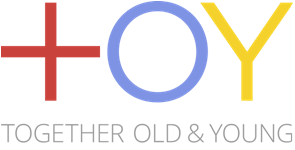 Το πρόγραμμα TOY for Quality μόλις ξεκίνησε!
Το πρόγραμμα TOY for Quality μόλις ξεκίνησε!
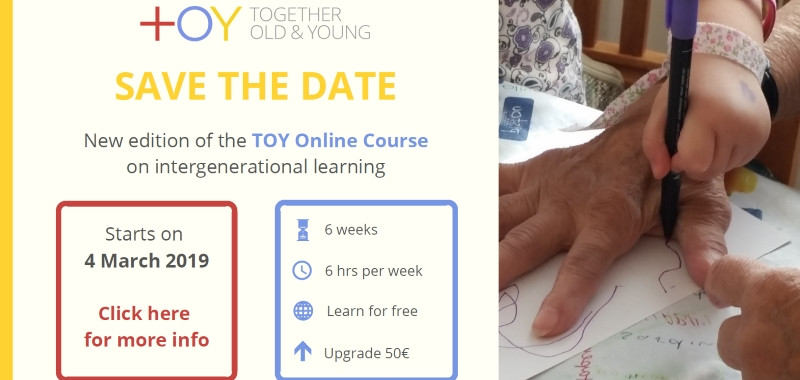
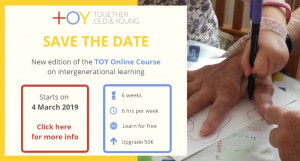
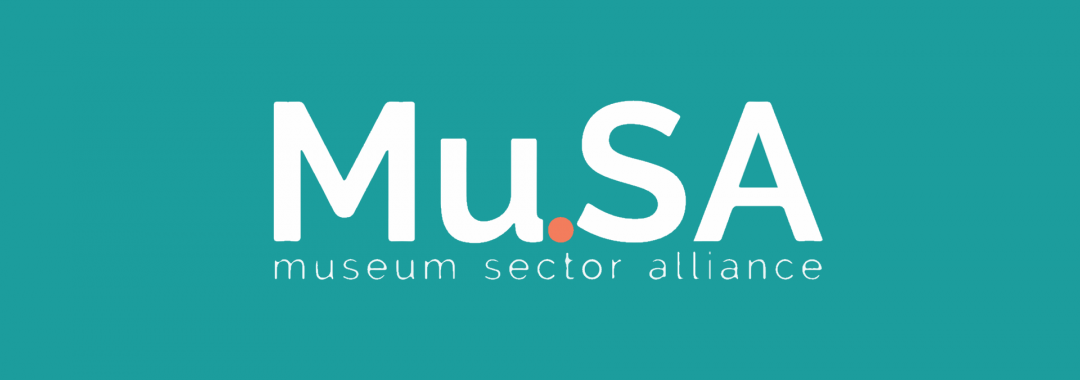
 Στόχος της Ημερίδας είναι να παρουσιαστεί το Mu.SA, τα ερευνητικά αποτελέσματα και οι δραστηριότητές του έργου καθώς επίσης και οι υφιστάμενες προοπτικές εκπαίδευσης και κατάρτισης σε ψηφιακές και μεταβιβάσιμες δεξιότητες για μουσειολόγους, επαγγελματίες του πολιτισμού και φοιτητές αλλά και η εφαρμογή αυτών σε πρακτικό επίπεδο. Επίσης, θα παρουσιαστούν ομιλίες από το Πανεπιστήμιο Θεσσαλίας και τους πολιτιστικούς οργανισμούς της Λάρισας και των Εφορειών Αρχαιοτήτων των Νομών Καρδίτσας και Τρικάλων σε θέματα όπως η χρήση των νέων τεχνολογιών, η διαχείριση της ψηφιακής πολιτιστικής κληρονομιάς καθώς και ο σχεδιασμός και η υλοποίηση μουσειακών εκπαιδευτικών προγραμμάτων.
Στόχος της Ημερίδας είναι να παρουσιαστεί το Mu.SA, τα ερευνητικά αποτελέσματα και οι δραστηριότητές του έργου καθώς επίσης και οι υφιστάμενες προοπτικές εκπαίδευσης και κατάρτισης σε ψηφιακές και μεταβιβάσιμες δεξιότητες για μουσειολόγους, επαγγελματίες του πολιτισμού και φοιτητές αλλά και η εφαρμογή αυτών σε πρακτικό επίπεδο. Επίσης, θα παρουσιαστούν ομιλίες από το Πανεπιστήμιο Θεσσαλίας και τους πολιτιστικούς οργανισμούς της Λάρισας και των Εφορειών Αρχαιοτήτων των Νομών Καρδίτσας και Τρικάλων σε θέματα όπως η χρήση των νέων τεχνολογιών, η διαχείριση της ψηφιακής πολιτιστικής κληρονομιάς καθώς και ο σχεδιασμός και η υλοποίηση μουσειακών εκπαιδευτικών προγραμμάτων.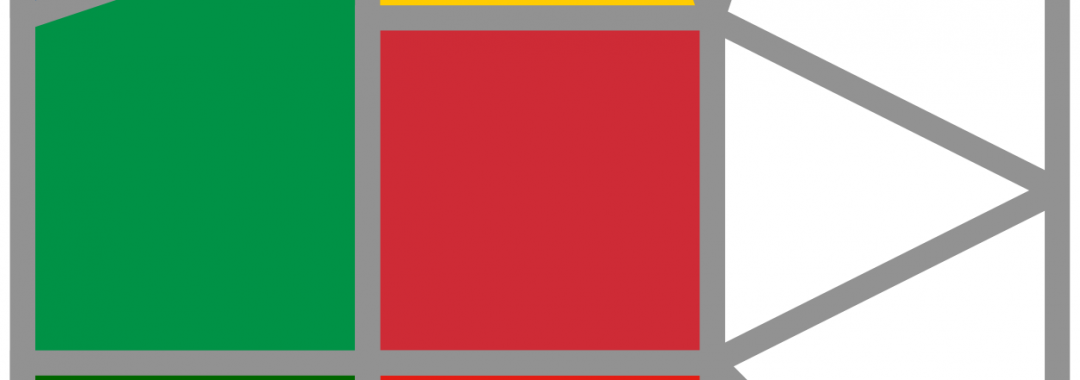
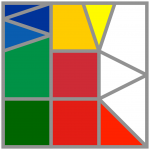 The project Safeguarding Intangible and Cultural values and heritage (S.I.L.V.HER) connects 5 partners (EGINA, UNIBA, University of Tras-os-Monte and Alto Douro (UTAD), Pamukkale Universitesi, Hellenic Open University) coming from Italy, Greece, Portugal, Turkey) together under one goal, which is to develop a blended course in Cultural Heritage. S.I.L.V.HER training path includes the digital tool, not only as a means of learning, but also and above all as a future means of developing a strategic sector that will support a process of European identity recognition .
The project Safeguarding Intangible and Cultural values and heritage (S.I.L.V.HER) connects 5 partners (EGINA, UNIBA, University of Tras-os-Monte and Alto Douro (UTAD), Pamukkale Universitesi, Hellenic Open University) coming from Italy, Greece, Portugal, Turkey) together under one goal, which is to develop a blended course in Cultural Heritage. S.I.L.V.HER training path includes the digital tool, not only as a means of learning, but also and above all as a future means of developing a strategic sector that will support a process of European identity recognition .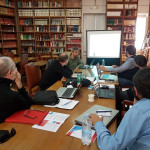
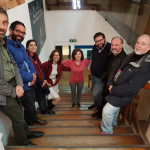
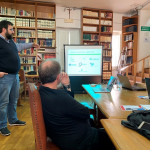
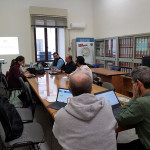
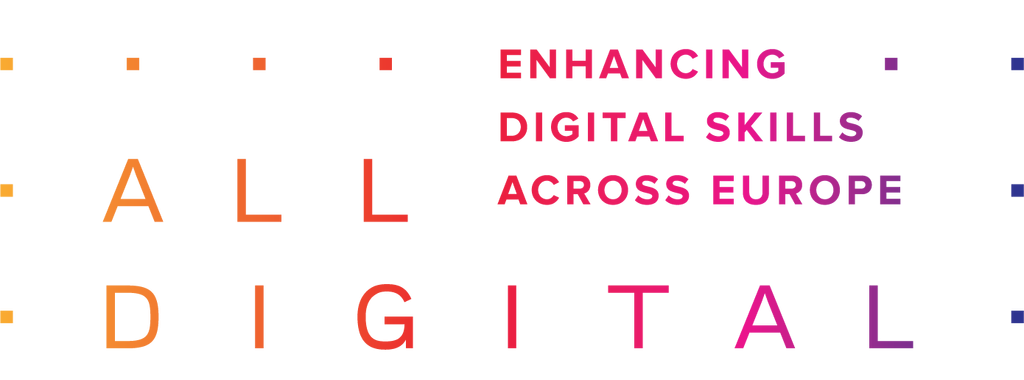
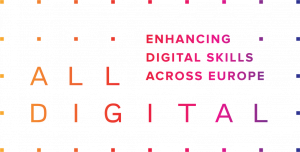 DAISSy researchers participate in two VERY important workshops organized by ALL DIGITAL during the ICT2018:
DAISSy researchers participate in two VERY important workshops organized by ALL DIGITAL during the ICT2018: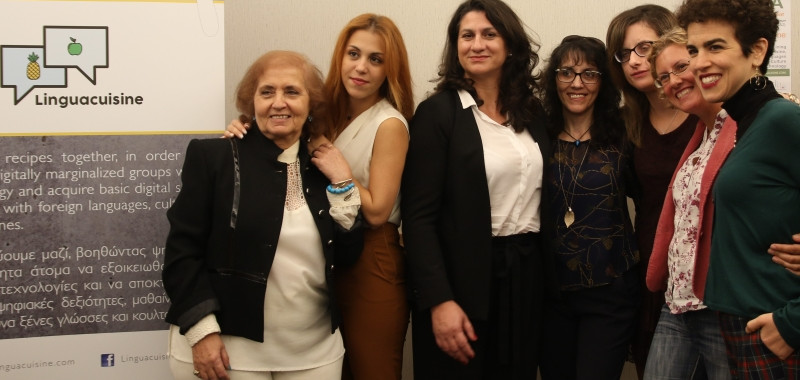
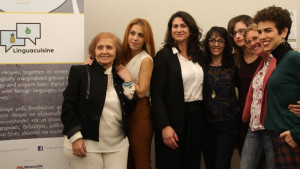
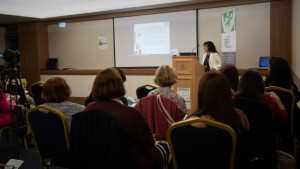
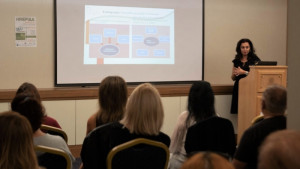
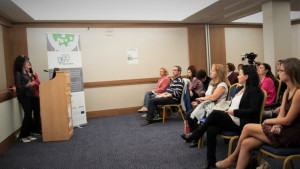
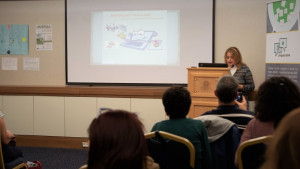
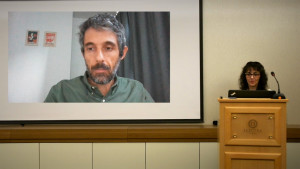
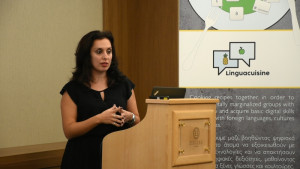
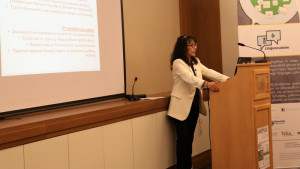
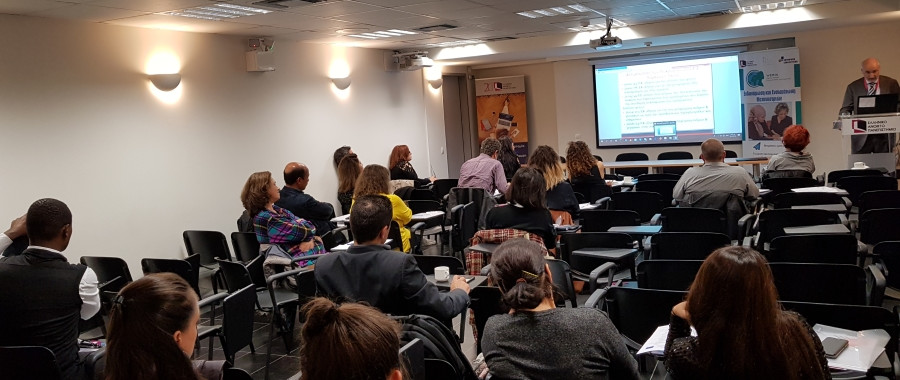
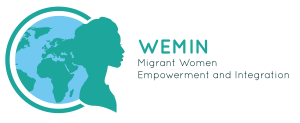 Η Ερευνητική Ομάδα DAISSy του Ελληνικού Ανοικτού Πανεπιστημίου συντονίζει το έργο
Η Ερευνητική Ομάδα DAISSy του Ελληνικού Ανοικτού Πανεπιστημίου συντονίζει το έργο 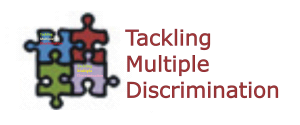 Όπως ανέφερε ο Δρ. Σαρρής, η καταπολέμηση των διακρίσεων αποτελεί βασικό αντικείμενο διεθνών οργανισμών και εθνικών κρατών. Σύμφωνα με έρευνα του ΕΚΚΕ που διεξήχθη το 2017, οι ερωτώμενοι ανέφεραν ότι γίνονται διακρίσεις συχνά και πολύ συχνά με βάση την εθνική προέλευση ( 76,5%), τον σεξουαλικό προσανατολισμό ( 70,5%) και την αναπηρία (58,1%). Σημαντικό εύρημα της έρευνας ήταν ότι το 75% των ερωτηθέντων δεν γνωρίζει τον νόμο για τις πολλαπλές διακρίσεις, το 83,7% δεν κατήγγειλε το περιστατικό πολλαπλής διάκρισης με την πλειονότητα αυτών (55%) να δηλώνει ότι δεν πίστευε ότι θα βρει το δίκιο του, ενώ από αυτούς που κατήγγειλαν το περιστατικό το 61,9% δηλώνει ότι δεν βρέθηκε λύση. Η ανωτέρω έρευνα διεξήχθη στο πλαίσιο του έργου «Καταπολέμηση των πολλαπλών διακρίσεων στην Ελλάδα: Προώθηση της ισότητας μέσω της ενεργητικής συμμετοχής και της διαμόρφωσης πολιτικών», το οποίο συντονίζεται από το Εθνικό Κέντρο Κοινωνικών Ερευνών και στο οποίο συμμετέχουν η ερευνητική ομάδα DAISSy του ΕΑΠ, μαζί με το Πανεπιστήμιο της Σεβίλλης, την Οικονομική και Κοινωνική Επιτροπή (ΟΚΕ) και την η Περιφέρεια Κρήτης. Το έργο αυτό χρηματοδοτείται κατά 80% από το Ευρωπαϊκό πρόγραμμα Rights, Equality and Citizenship (REC) της Ευρωπαϊκής Ένωσης και κατά 20% από ίδιους πόρους.
Όπως ανέφερε ο Δρ. Σαρρής, η καταπολέμηση των διακρίσεων αποτελεί βασικό αντικείμενο διεθνών οργανισμών και εθνικών κρατών. Σύμφωνα με έρευνα του ΕΚΚΕ που διεξήχθη το 2017, οι ερωτώμενοι ανέφεραν ότι γίνονται διακρίσεις συχνά και πολύ συχνά με βάση την εθνική προέλευση ( 76,5%), τον σεξουαλικό προσανατολισμό ( 70,5%) και την αναπηρία (58,1%). Σημαντικό εύρημα της έρευνας ήταν ότι το 75% των ερωτηθέντων δεν γνωρίζει τον νόμο για τις πολλαπλές διακρίσεις, το 83,7% δεν κατήγγειλε το περιστατικό πολλαπλής διάκρισης με την πλειονότητα αυτών (55%) να δηλώνει ότι δεν πίστευε ότι θα βρει το δίκιο του, ενώ από αυτούς που κατήγγειλαν το περιστατικό το 61,9% δηλώνει ότι δεν βρέθηκε λύση. Η ανωτέρω έρευνα διεξήχθη στο πλαίσιο του έργου «Καταπολέμηση των πολλαπλών διακρίσεων στην Ελλάδα: Προώθηση της ισότητας μέσω της ενεργητικής συμμετοχής και της διαμόρφωσης πολιτικών», το οποίο συντονίζεται από το Εθνικό Κέντρο Κοινωνικών Ερευνών και στο οποίο συμμετέχουν η ερευνητική ομάδα DAISSy του ΕΑΠ, μαζί με το Πανεπιστήμιο της Σεβίλλης, την Οικονομική και Κοινωνική Επιτροπή (ΟΚΕ) και την η Περιφέρεια Κρήτης. Το έργο αυτό χρηματοδοτείται κατά 80% από το Ευρωπαϊκό πρόγραμμα Rights, Equality and Citizenship (REC) της Ευρωπαϊκής Ένωσης και κατά 20% από ίδιους πόρους.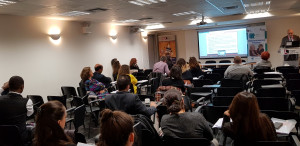

 Η Ημερίδα συνδιοργανώνεται από το Ελληνικό Ανοικτό Πανεπιστήμιο, την ερευνητική ομάδα
Η Ημερίδα συνδιοργανώνεται από το Ελληνικό Ανοικτό Πανεπιστήμιο, την ερευνητική ομάδα 